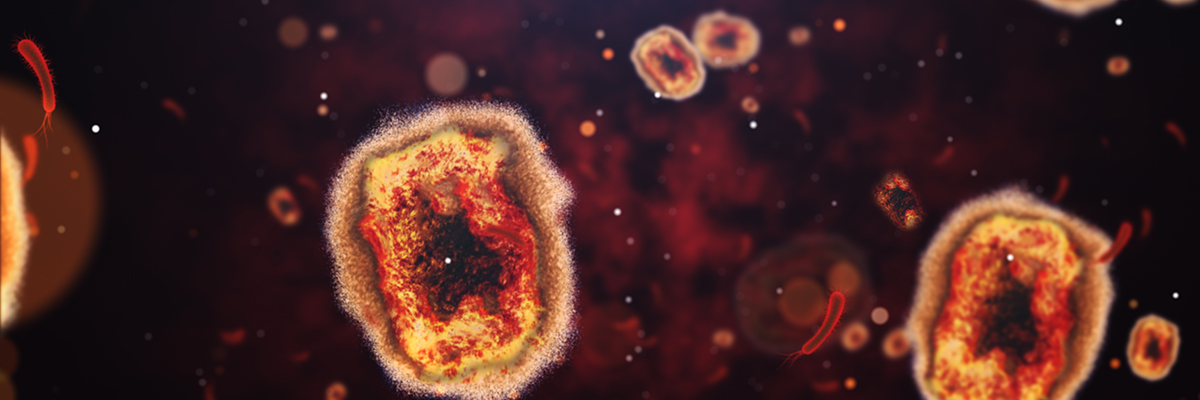Monkeypox is a virus that is endemic in West and Central Africa. It is not a new virus - it was first identified in monkeys in 1958 in a research facility in Denmark, from which its name originates. Although it is called monkeypox, the actual main reservoir of the virus is suspected to be rodents.
There have been sporadic cases of monkeypox outside West and Central Africa in the past, but these have always been related to travel to endemic areas. The current outbreaks and community transmission are unusual and different from previous travel-related outbreaks. It is not yet clear why the apparent transmission of the virus has changed.
The monkeypox virus is related to the smallpox and cowpox viruses, but not to the chickenpox virus. There are two strains: a West African strain and a Congo Basin strain. The current outbreaks involve the former, which is the less virulent strain.
The infection tends to be mild, self-limiting and lasts between two and four weeks. Currently, there have been no deaths attributed to monkeypox.
Typical symptoms include fever, headache, muscle aches, backache, lack of energy, swollen lymph nodes (glands) and a skin rash or lesions. Although it may initially present in a similar way to chickenpox, the swollen lymph nodes (glands) are specific to monkeypox.
The rash tends to appear two-three days after fever onset. A person with monkeypox remains infectious while they have symptoms, normally between two and four weeks.
In contrast to Covid-19, asymptomatic transmission is not thought to be significant. The virus is transmitted by close contact with the skin lesions, body fluids and contaminated materials such as bedding and clothing. Ulcers, lesions or sores in the mouth can also be infectious, meaning the virus can spread through saliva.
People who closely interact with someone who is infectious, such as healthcare workers, household members and sexual partners are at the greatest risk of infection.
Effective vaccines already exist for monkeypox. The smallpox vaccine is around 85% effective in preventing monkeypox, and these are being deployed where cases are identified.
Advice to members and Representatives
It should be stressed that the risk to members is currently very low. This is not a Covid-19 situation: the virus does not spread easily between people, is not thought to be airborne, and cases are still rare.
Schools should, however, be vigilant for any suspected cases.
If there is a suspected case in a school, the individual should be isolated, as per the Covid-19 risk assessment, sent home and advised to contact their GP.
The headteacher/principal should also contact local public health authorities for advice following suspected or confirmed cases of monkeypox. Preventative measures should be taken that include deep cleaning areas that may be contaminated.
The person infected must remain off school and in self-isolation until all the skin lesions have crusted and the scabs have fallen off. Staff must not be pressurised to return to school, even if they feel well, before the scabs have fallen off.
Pupils must also remain off school until all the scabs have fallen off.
In contrast to Covid-19, asymptomatic transmission is thought to be unlikely. However, whilst current World Health Organization (WHO) advice is that there is no need for self-isolation, the UK Health Security Agency has said that high-risk contacts will be required to self-isolate for up to 21 days.
In any case, parents and staff should be informed of the case, without identifying the person infected, so that others can be watchful of symptoms.
It must also be stressed that although the virus is currently disproportionately affecting people who are gay or bisexual and men who have sex with men, anyone can be infected or pass on monkeypox through close contact regardless of their sexuality.
Schools must ensure that LGBTI staff and pupils are not stigmatised or discriminated against through inappropriate reactions to the virus.
If you have concerns about your schools’ approach, you should contact the NASUWT for further advice.
Anonymous feedback
If you require a response from us, please DO NOT use this form. Please use our Contact Us page instead.
In our continued efforts to improve the website, we evaluate all the feedback you leave here because your insight is invaluable to us, but all your comments are processed anonymously and we are unable to respond to them directly.

